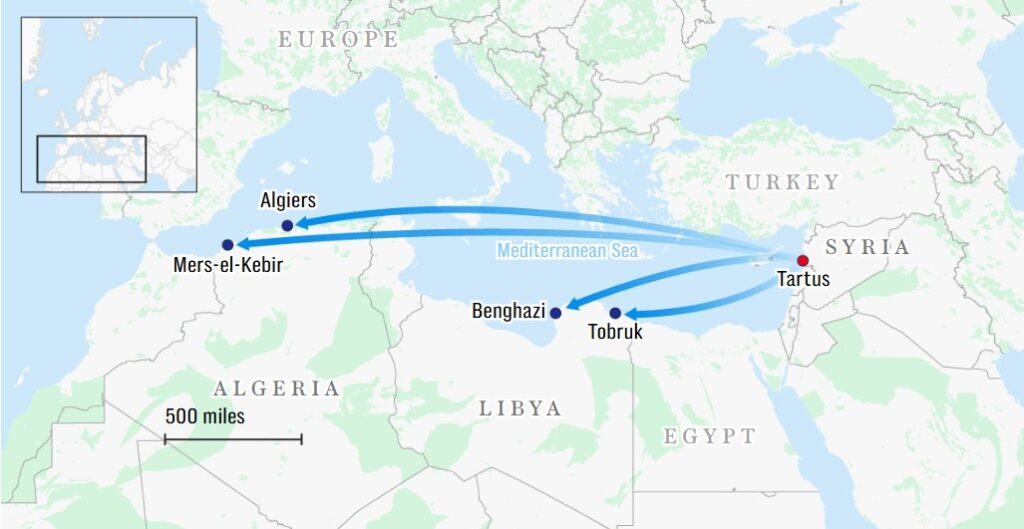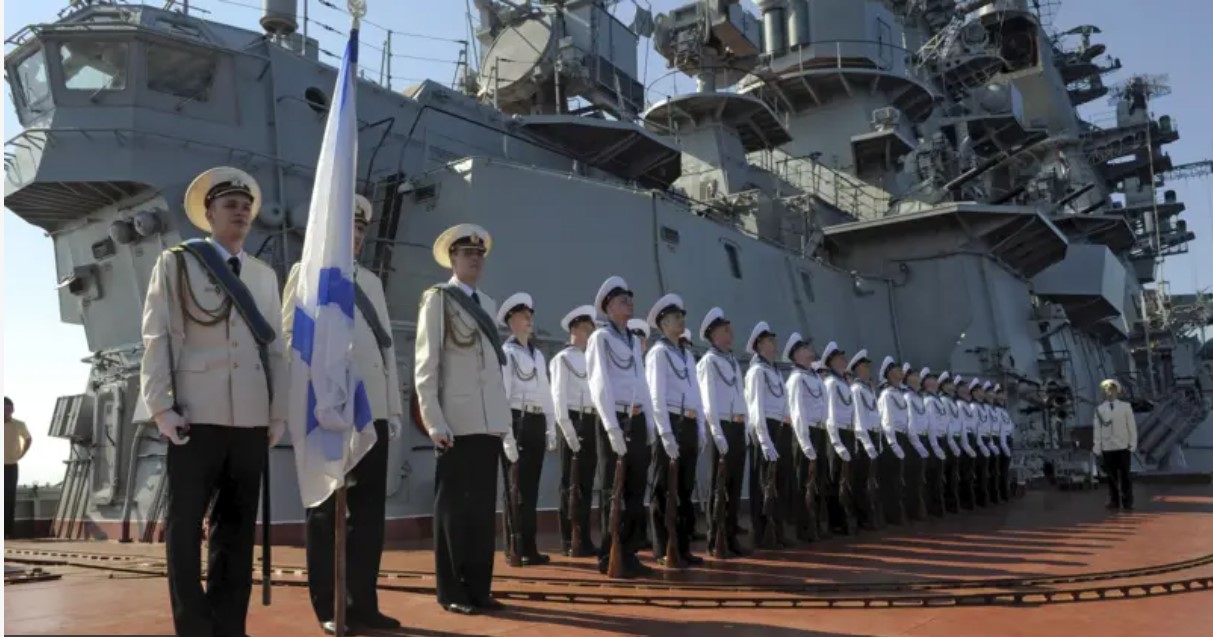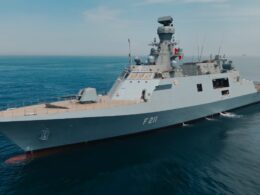Russia's naval presence in the Mediterranean appears to be ending as ships arrive at Syria's Tartus port for what looks like an evacuation following the fall of the Assad regime. The Telegraph reports that this development, along with NATO's expansion in the Baltic region, marks a significant shift in naval power dynamics.
The departure from Tartus, Russia's only Mediterranean naval base, represents a major strategic setback for Moscow. It effectively ends its ability to project power in southern Europe and the Middle East without lengthy deployments from distant home ports. The withdrawal comes amid broader regional changes that have seen NATO's influence expand while Russia's maritime reach contracts on multiple fronts, creating what analysts call a "homeless Russian Mediterranean Fleet."
"At best, the Russian navy in the Mediterranean faces uncertainty," notes a new Royal United Services Institute (RUSI) report, as thousands of Russian personnel and their warships prepare to depart Syria.
The strategic implications are substantial. Russia has maintained a presence in Tartus since the 1970s, significantly expanding its role after 2015 when it intervened in the Syrian civil war. The base became particularly crucial after Türkiye closed the Bosporus Strait to foreign warships in 2022, making it Russia's sole Mediterranean naval facility.
According to The Telegraph, Russian forces retreated to Tartus and Khmeimim Air Base in November as rebel groups mounted a surprise offensive. By late January, equipment was being staged for withdrawal after failed negotiations with the new rebel government for continued access.

While alternative bases exist in Algeria, Sudan, and Libya, RUSI indicates none are viable replacements. The think-tank notes that Algeria lacks a "clear imperative" to host Russian forces, Port Sudan negotiations are "still floundering," and Libyan facilities present "technical challenges."
"If the Russian navy loses this access, it will not cease to be a regional player," RUSI explains, "but its presence will be far more diluted."
This naval retreat coincides with Russia's diminishing influence in the Baltic Sea, which has effectively become a "NATO lake" following Sweden and Finland's alliance membership. Russian vessels would face a perilous journey from Arctic bases through multiple strategic chokepoints to reach southern European waters in any potential conflict.
Read more:
- Russian troops spotted using horses and donkeys in Ukraine. But why?
- “Ethical line is very thin”: Western firms pocket $ 6 billion selling old tankers to Russia's shadow fleet despite sanctions
- ISW: Russia deploys ship-based Orion drones as Ukraine cripples Black Sea fleet




